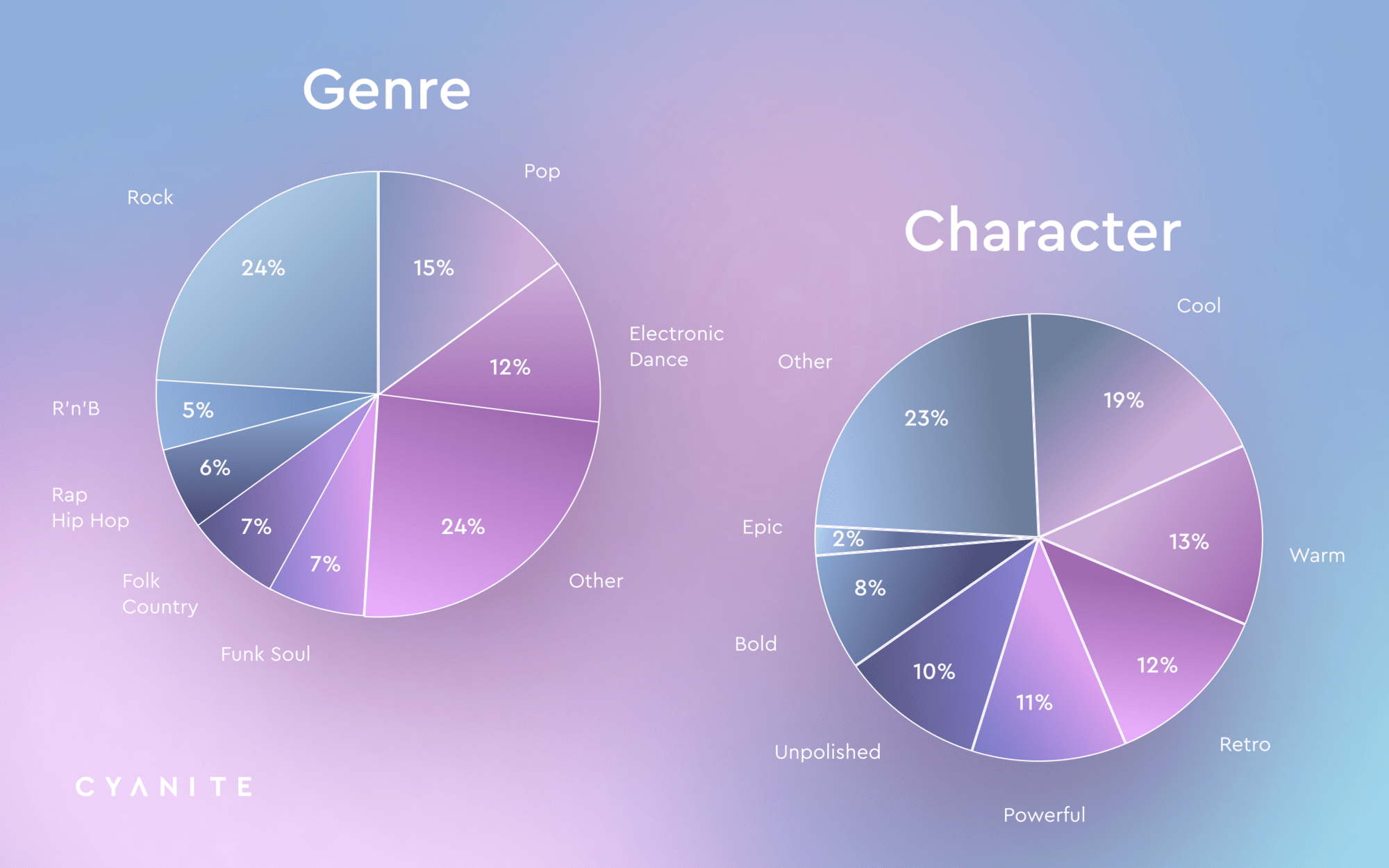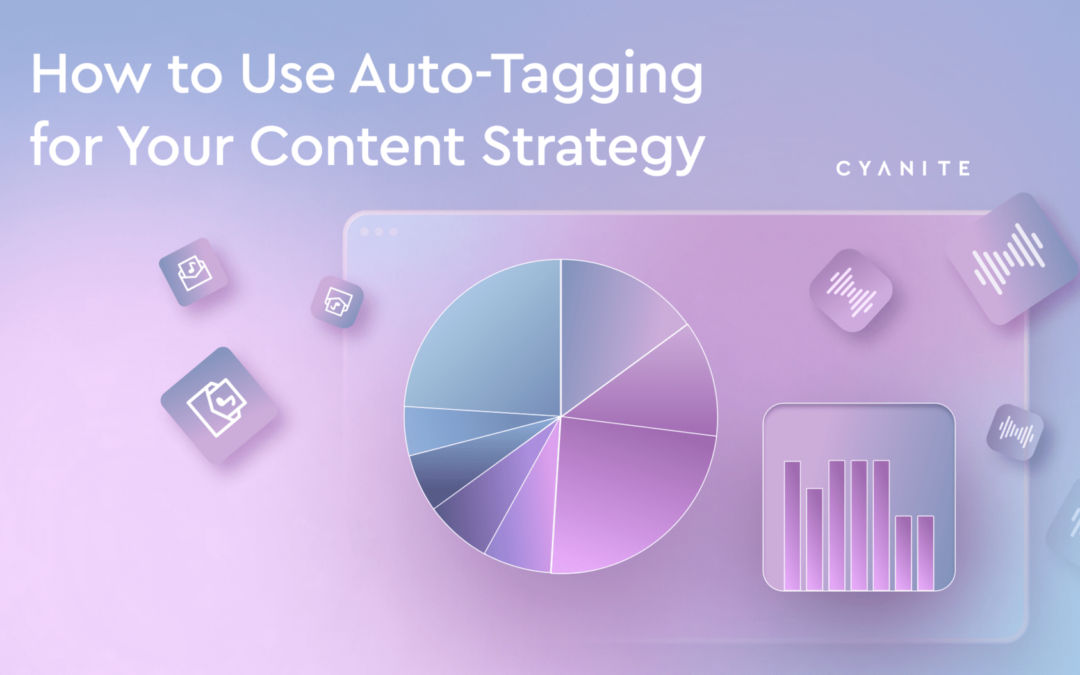Last updated on September 23rd, 2024 at 01:10 pm
An Introduction
By Jakob Höflich, Co-Founder and CMO of Cyanite
When I was 19, I worked at community radio 4ZZZ in Brisbane, tasked with digitizing daily CD deliveries, tagging their genre, and sorting them in the library. It was a tedious and challenging task – every mistake could persist in the library until corrected. And let’s face it, this rarely was the case. This was one of the experiences that motivated me to found Cyanite many years later, also to help catalog owners tag their catalogs with AI and to eradicate the legacy of tagging mistakes made in the past 25 years of digitization.
While Auto-Tagging to create a clean and better searchable library has become a commodity, with various music companies worldwide leveraging this to alleviate the burden on their tagging teams and create more space for creative work, there is one underappreciated use case that has recently grown in significance: using Auto-Tagging data on a global catalog basis to derive actionable insights for your content strategy.
From Hunches to Data-Driven Insights
If you own or work with a music catalog, you likely have a solid understanding of its character. But what if the number of songs goes in the tens of thousands or even beyond? How confident can you be to know the profile of the catalog and what it stands for? When making important decisions about the creative direction of your catalog, especially with multiple stakeholders involved, this ‘feeling’ can tend to be subjective and leave room for guesswork. It’s the music’s subjective and “magical” nature that makes it hard to quantify and discuss.
That’s why keywords remain crucial when managing and developing a catalog where AI can be so helpful to your work. By providing data insights, AI can turn these hunches into consistent and concrete knowledge.
Here are three benefits of leveraging music Auto-Tagging for your content strategy.
1. Deep Understanding of a Catalog’s Character
AI music Auto-Tagging dives deep into the sound character of a catalog. By translating the complexity of music into concrete datapoints such as genres and moods, it allows for a shared, objective and consistent understanding across your team or company. Imagine having a precise breakdown of your catalog’s characteristics at your fingertips. Like, which percentage of my repertoire is Rock, Funk, Disco? Does it stand for upbeat or more melancholic tones? Do I maybe have a gender problem by favoring one more over the other? This not only enhances internal cohesion but also aligns strategies and decisions.
Pro Tip: Our Auto-Tagging focuses on creative metadata, extracting information such as genres, BPM, key, and energy. Curious? Check out our full taxonomy. It does not extract copyright or performance metadata. A smart move here is to pair the AI-driven insights with other data pools. For example, pairing AI-insights with performance and sales data can reveal things like: Only 2% of my catalog is Hip Hop, yet this content has a 200% higher performance rate.
2. Uncovering Blind Spots and Highlighting Trends
AI’s ability to uncover blind spots and highlight trends within a catalog is another significant benefit. This data-driven approach can reveal underutilized niches or trends when data is placed on a timeline. Whether it’s identifying a resurgence in a particular genre or pinpointing areas with high sync opportunities, AI insights shed light on the hidden corners of a catalog. Particularly for sync teams of companies that do not have a distinct genre profile it is beneficial to have a balanced catalog to answer to the upmost possible amounts of briefs with adequate content.
3. Informed Decisions for Catalog Acquisition
Lastly, AI-driven insights are not limited to managing your existing catalog. They are invaluable when evaluating to-be-acquired catalogs. While frontline repertoire might be familiar, B-sides and deep cuts often remain mysterious territories. By thoroughly analyzing these lesser-known tracks, AI can contribute a creative due diligence aspect by providing a comprehensive understanding, which in turn informs better acquisition decisions. This ensures you’re investing in a catalog that has the ability to complement your existing one.
Contrarily, if you want to sell a catalog, comprehensive tagging data on your repertoire can help you identify the perfect acquirer or prove the future longevity of your catalog to drive up the multiple.
A Real-World Example
A German publisher utilizing Cyanite’s AI insights discovered previously underappreciated genres, allowing them to optimize their catalog strategy effectively. The analysis showed that the genres Hip Hop, Funk, and RnB and the mood Epic were underrepresented even though both have been extremely valuable qualities for successful sync placements in the last years.
Visual representations, such as pie charts and graphs, can further show how AI can dissect and categorize catalog elements, providing clear, actionable insights.

All data above can be retrieved via our API.
Conclusion: Embracing the Future with AI
AI music Auto-Tagging can be a great help for developing content strategies in the music industry. These actionable insights provide a deep, data-driven understanding of catalogs, uncover blind spots, highlight trends, and inform strategic decisions for catalog acquisitions.
Undoubtedly, AI can’t and shouldn’t replace the final decision-making process as it can’t anticipate the future as us humans do. But it can be used as a great tool to navigate this process with data that make it easier – and often more convincingly – to talk about the magic of music.
As we live in a time where content production is at an all-time peak providing the sync market with opportunities as never before, every song in the catalog should have the same chance of being discovered. Having a well-organized and indexed catalog is key to that.

